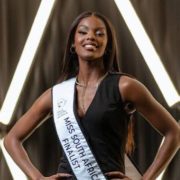Osalobua, Jugumishanta: All About African Gods and Goddesses
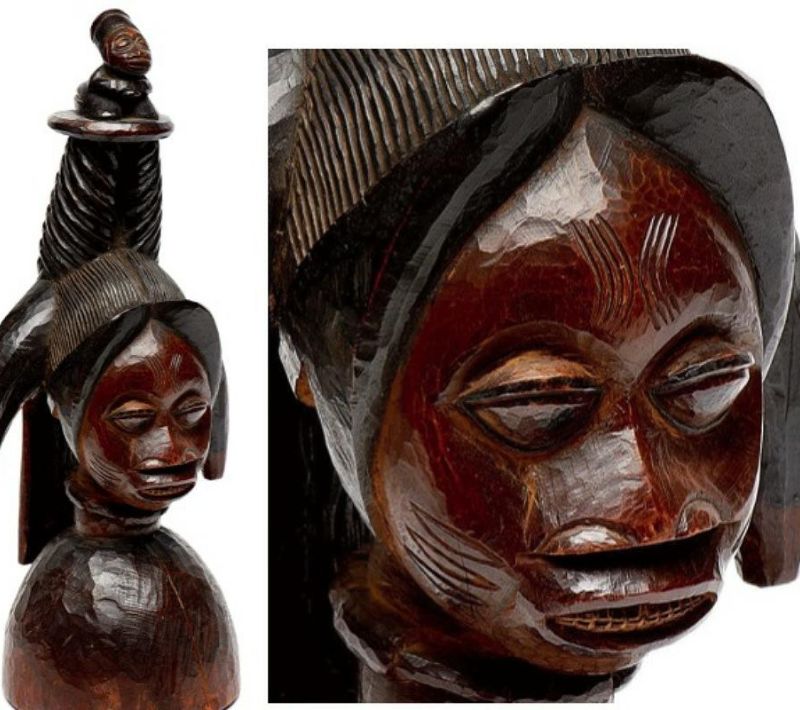
The similarities between the African religious beliefs further supports the argument that boundaries across Africa are man-made and shouldn’t have existed. From the Bantu people of Kenya to the Yorubas of Nigeria, there are great similarities. The belief in a Supreme being, an all-powerful deity cuts across all the tribes in Africa.
We will be learning the names of African gods, the legends that talk about their identity, and the mode of worship of the people. While reading, it is important to note that these stories are older than the coming of the White man to Africa.
African Gods, Goddesses, and Their Myths
1. Ngai (Kenya)
In most African stories of a supreme deity, the supreme God always lives in the sky or the mountains. In the everyday life of Africans, height is most often associated with authority and perhaps that is the reason why Africans look towards the sky. According to Wikipedia, Ngai (other names: Engai, Enkai, Mweai, or Mwiai) is the monolithic Supreme God in the spirituality of the Kamba and Kikuyu (or Gikuyu) of Kenya.[1] Ngai is the creator of the universe and all in it. Regarded as the omnipotent God,[2] the Kikuyu worshiped Ngai facing the Mountain Kirinyaga (Mount Kenya) while prayers and goat sacrificial rituals were performed under the sacred Mugumo tree (a fig tree species). Occasions that may warrant sacrifice or libation include times of drought; epidemics; during planting and harvesting; and human life stages such as birth, marriage, and death.[2][3]
Ngai was often referred to as “Mwene Nyaga”, meaning “Owner of the Dazzling Light”.
According to the Kikuyu creation myth, Ngai created humanity, the first man called Gikuyu and first woman called Mumbi. Ngai created a mountain “As his resting place when on an inspection tour and as a sign of his wonders. Gĩkũyũ and Mũmbi bore nine daughters who became the origins of 9 clans of Kikuyu people. “The names of the main clans are (1) Acheera; (2) Agachikũ; (3) Airimũ; (4) Ambũi; (5) Angarĩ; (6) Anjirũ; (7) Angũi; (8) Ethaga; (9) Aithĩrandũ.”
Reading this, one would notice the similarities between this and the Biblical story of creation. According to the Bible, Jehovah came to the earth and discovered that it was dark. Then he created light, then he created animals, and lastly, he created two humans who were called Adam and Eve and charged them with the duty of populating the earth.
The similarities between the African beliefs of a supreme God and the European belief in a supreme being could have been what encouraged the spread of Christianity. The Africans having heard the biblical story might have said, we have something like this too, this people just call it by another name.
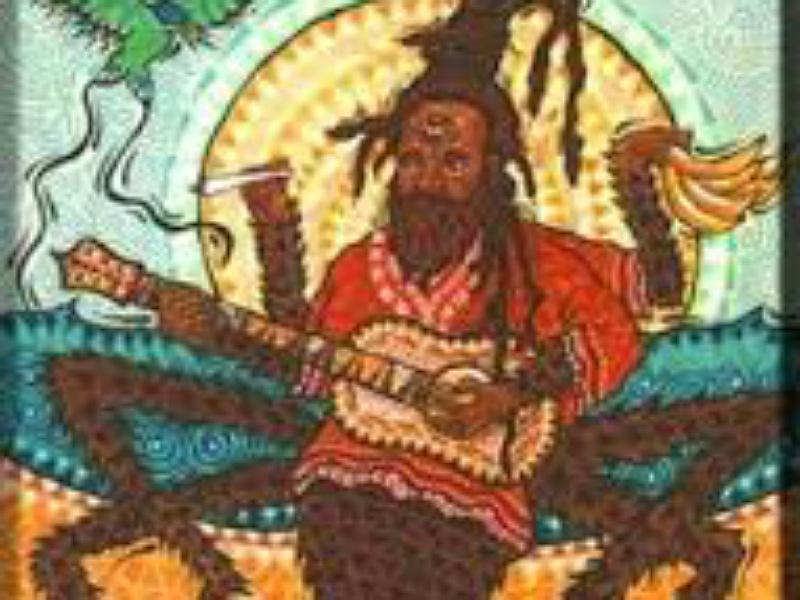
2. Nyame (Akan, Ghana)
The Akan religion has “branches” in countries like Ghana, Jamaica, and Haiti due to the migrational influence of the Slave Trade. Followers of Akan spirituality believe in a supreme god who created the universe. He is distant and does not interact with humans.
The creator god takes on different names depending upon the region of worship, including Nyame, Nyankopon, Brekyirihunuade (“Almighty”), Odomankoma (“infinite inventor”), Ɔbɔadeɛ (“creator”) and Anansi Kokuroko (“the great designer” or “the great spider”).[4] It is occasionally said that the creator god is a part of a triune deity or triad, which consists of Nyame, Nyankopon, and Odomankoma.
The supreme creator is an omniscient, omnipotent sky father. His wife is Asase Yaa (also known as Mother Earth), considered second to God. Together they brought forth two children: Bia and Tano.
Source: Wikipedia
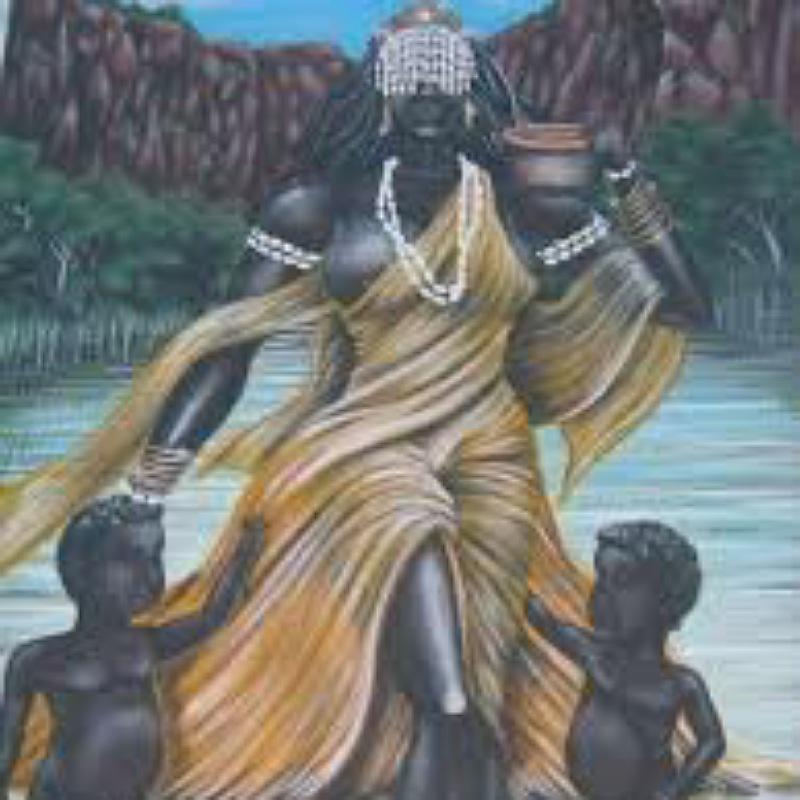
3. Akongo (Republic of Congo)
African people also have Gods who are relatable, and humanlike. One of such Gods is Akongo. Akongo, according to the legend, used to live on earth. When the earth became unconducive for him because of the sins of the people, he moved to heaven with his family.
Akongo is a Creator God in African mythology. He is worshipped by the Ngombe people of the Congo.
The Christian faith and non-Christian religions explain that Akongo “is not impersonal, like Mana: indeed the people make a clear distinction between the latter and Akongo himself…on the other hand, he is not universally benevolent”
According to legend, Akongo originally lived with people but left because they were constantly fighting. His daughter, Mbokomu, caused trouble in heaven so he lowered her down to earth in a basket with her two children. She was the ancestor of all people.
Source: Wikipedia
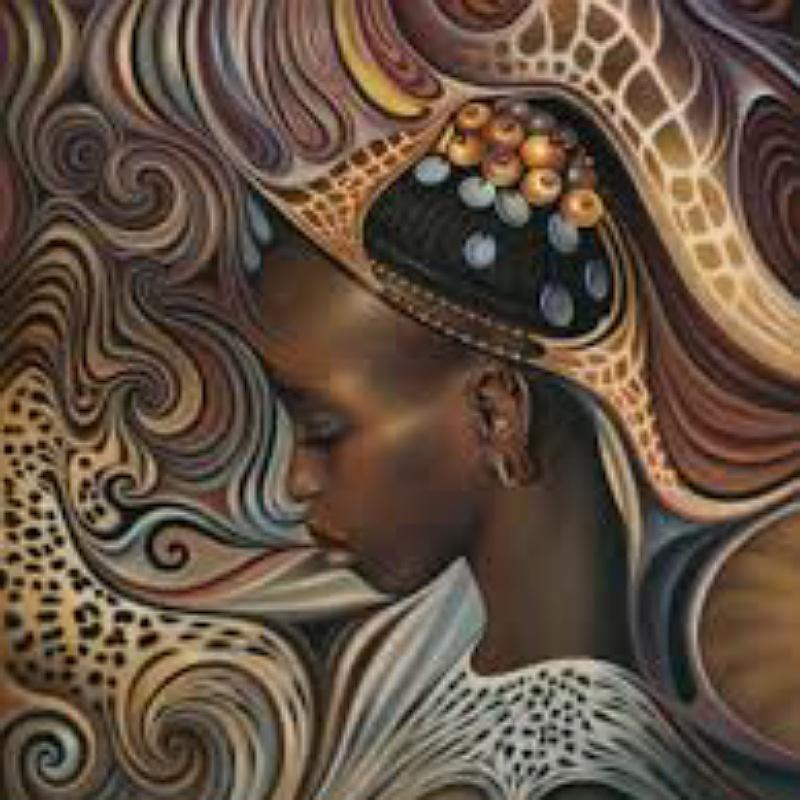
4. Jugumishanta (Papua, New Guinea)
Unlike in other African communities where the Supreme deity is male, the people of Papua, New Guinea have been blessed with a female deity called Jugumishanta.
To the Vanuatuan/Ni-Vanuatu people of Vanuatu (previously known as the New Hebrides) in Melanesia, She is Mother Earth, the goddess of creation. Her consort or cohort is Morufonu. She is hairy and he is not. Legend has it that she had a flute on which she played melodies. After playing, she would hide it in a hidey-hole with a piece of her public hair acting as an alarm.
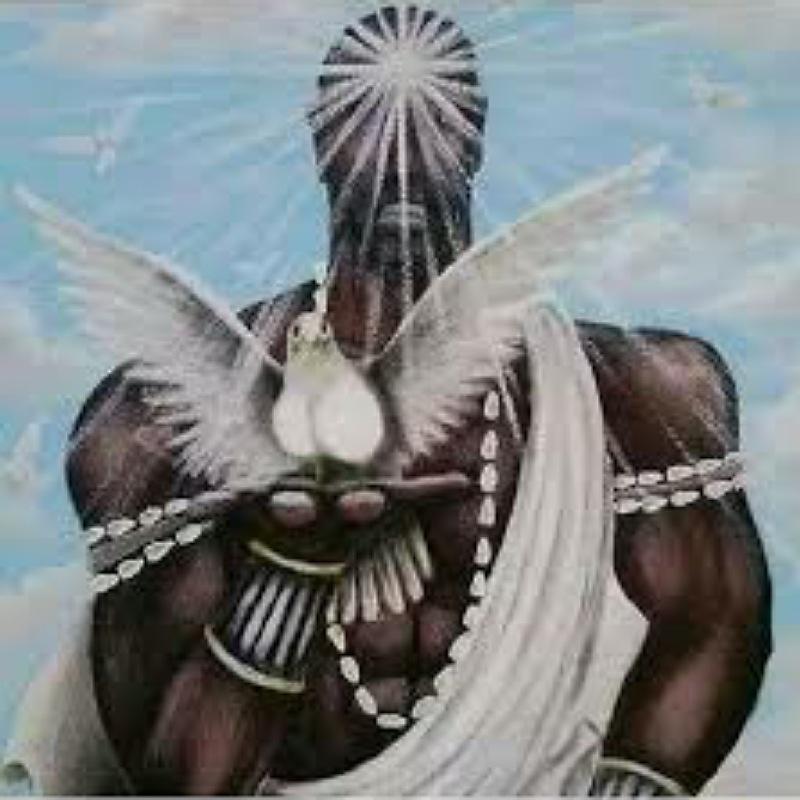
5. Osalobua (Edo, Nigeria)
Osalobua is the name for God in the Edo language. It is often abbreviated as Osa, which is commonly integrated into modern Edo names, such as Esosa, which means God’s goodness or gift; Eghosa, God’s time; and Efosa, God’s blessings or wealth. The epithet Osalobua Noghodua means God Almighty. The word Osalobua encompasses a large number of divine principles – including the divine state of being merciful, timeless, goodness, justice, sublimity, and supreme. In the Edo belief system, Osalobua has the divine attributes of omnipresence (orhiole), omniscience (ajoana), and omnipotence (udazi). The Supreme Deity is believed to be present everywhere and at all times.
Source: Wikipedia
6. Osun (Yoruba, West Africa)
Ọṣun, is an Orisha, a spirit, a deity, or a goddess that reflects one of the manifestations of the Yorùbá Supreme Being in the Ifá oral tradition and Yoruba-based religions of West Africa. She is one of the most popular and venerated Orishas. Oshun is an important river deity among the Yorùbá people. She is the goddess of divinity, femininity, fertility, beauty and love. She is connected to destiny and divination.
According to the Ifa Literary Corpus, Ọṣun was the only female Irunmole (primordial spirit) sent to assist Shango to create the world by Olodumare. The other spirits that were sent began the work and ignored Ọṣun. Ọṣun went to her partner Shango for guidance. Two versions of this story exist. One claims that female spirits were tempted to take matters into their own hands, but all of their creative attempts failed because they acted without male spiritual leadership. Another version, and this one more consistent with the beginning of the story, claims that the male spirits attempted to make the world without female influence, and this exclusion is what caused the world to fail.[6] The former version appears to reflect a patriarchal influence on orisha narratives that sprang up with the influence of Abrahamic religions, while the second is more in line with traditional orisha beliefs, which revere feminine power. Both story versions end with Shango forcing the other spirits’ hand to respect Osun as they would him. Through her sacrifice, Olodumare, God granted her the powers of an Orisha.
Source: Wikipedia
7. Thoth (Egypt)
Thoth, the god of writing and wisdom, could be depicted in the form of a baboon or a sacred ibis or as a man with the head of an ibis. He was believed to have invented language and the hieroglyphic script and to serve as a scribe and adviser for the gods. As the god of wisdom, Thoth was said to possess knowledge of magic and secrets unavailable to the other gods.
In underworld scenes showing the judgment undergone by the deceased after their deaths, Thoth is depicted as weighing the hearts of the deceased and reporting the verdict to Osiris, the god of the dead.
Source: Britannica
How Africans Worship Their Gods And Goddesses
To the Africans, gods and goddesses are powerful spirits who create life and live in the extraterrestrial environment. These Gods however need the worship of their followers to stay healthy and happy. This creates a mutual reliance between the worshipper and the worshipped.
The worshipper brings libation and sacrifices as offerings to the gods in return for good health, victory over his enemies, e.t.c. In cases where he does not get what he wants, a worshipper can go ahead to question his god or goddess and ask why he is not getting any dividends.
The African traditional worshipper has heightened spirituality because of the possibility of him/her becoming a vessel for his God or Goddess to thrive in. An individual who is possessed can now speak for the Gods, accept sacrifices, and stand as a physical representation of the deity in the eyes of the other worshippers and the world.
Although the advent of Christianity has made many Africans cease the worship of these deities, their powers still remain very potent. Yet, unlike the European God which is seen as unquestionable, African Gods and Goddesses are expected to perform or risk being questioned. The worst-case scenario is a case where worshippers become disenchanted with their God or Goddess and cease to worship them, thereby stripping them of their powers.
All images in this article are sourced from pinterest.com
She's a beauty and an exquisite lady who enjoys the high life in writing and poetry. Her writing style and prowess is innovative and focuses on the feminine perspective, bringing nothing but wholesome gratification to the African, Afrocentric and Afro-American women at large

